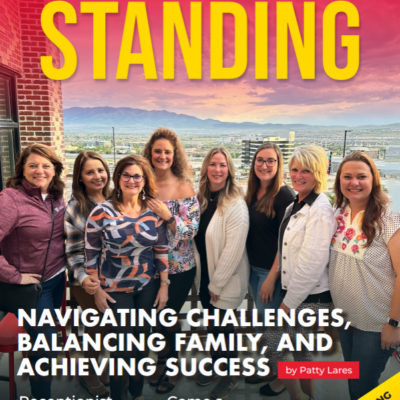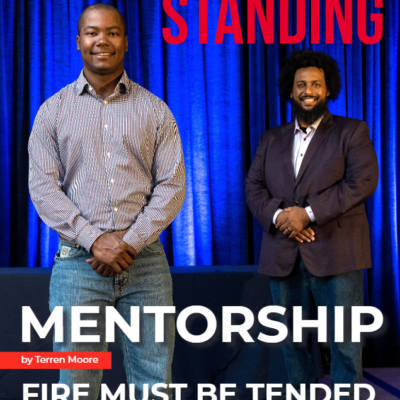While many believe the McKinsey report has caused quite a stir in the insurance industry as of late, I don’t believe that’s an accurate assessment. The information in the report has pushed insurance agents to a point of fear, chiefly from its statement regarding the end of local insurance agents. Comments such as these can cause severe backlash, as well as support, for a number of reasons. First and foremost, I believe the report to be about 85% true. In the report, it talks about three core capabilities that insurance agents need to do in order to survive. The first capability revolves around dividing a target market and understanding that agencies need to look for a larger area. The second is that agencies need to have a defined plan to reach their target market while keeping an open mind as to who they should be targeting. The third core capability is that agencies need to reach out to their target markets in other ways than the traditional advertising tactics. The McKinsey report states that old marketing tactics no longer work and that agencies need to be better at marketing by creating a digital presence online through channels such as Twitter, LinkedIn, and Facebook, which in turn will allow for more flexibility in communication. To me, the most interesting of these three aforementioned core capabilities is the third because it is something many insurance agents have already adopted into their communication strategy. I have yet to come across an agent who doesn’t believe that we need to be more flexible in our communication skills. Social media has become critical to the insurance industry and that’s why the McKinsey report has said that without using social media to communicate, your agency may not exist in the future.
Another facet of the McKinsey report that I feel is very accurate is its discussion about the modern consumer who is now looking for expertise. I firmly agree with this because I believe the consumer is no longer willing to pay for general information; they want the expert knowledge. We as agency owners need to create teams within our agencies to become experts in the different areas of coverage we offer because this will help satisfy the consumer‘s need. The consumer is not looking for us to be a ‘middleman,’ they are looking for us to be so much more. Having a value add will not only satisfy the needs of your consumers, but it is also critical to the future of your agency. Value add gives the consumer something more than just insurance. At Paradiso Insurance, we offer our prospects and clients the opportunity to be a part of our partner’s page- a site that allows businesses we insure an opportunity to advertise on our website. Another value add that we offer to local businesses is a social media marketing class because we feel it’s important to help each business in fostering a lasting partnership, just as their attorney or account has done over the years with them as well.
I feel that as an agency owner, the industry doesn’t do a great job explaining to prospects and clients what we stand for. Have you thought about what your agency actually stands for? This is the one thing that will separate us from all of our competition. For example, I was recently at Motorist Insurance Company and they were discussing where the next trip was for the qualifying agency owners. While they were discussing where they were going, they talked about the qualifications for the trip, and one in particular struck a nerve with me- if you qualified for the company trip, you were only allowed to bring your spouse, not a fiancé, girlfriend, or boyfriend. Motorist Insurance Company set these guidelines because they have chosen to take a stance and believe in their company identity. It’s not whether you like the stance they’ve taken or not, you should commend them for actually have the guts to take a stance on what they believe in, rather than worrying about being political correct.
Another interesting topic that the McKinsey report discusses is that agents position themselves to succeed through operational efficiency and sophisticated marketing tactics, rather than through deep product expertise. I firmly disagree with this notion because all you have to do is look at amazing consultants in our industry such as Roger Sickens and Scott Addis and see how our industry continues to adapt. The key though lies in how fast an agency adapts to the necessary changes, because otherwise that agency will be in deep trouble if it’s not willing to adapt itself. However, I believe that agencies are hiring consultants to assist them in creating efficiencies in their operational management because as I travel throughout the country and teach social media to agents, there is an overwhelming amount of interest in this subject matter, so clearly agents are willing to learn and adapt. Agents are not turning away from social media, they are embracing it and incorporating it into their overall marketing strategy. They need to do it quickly though, otherwise they will be left behind.
The report also metions the decline of agency force within the industry. These are facts, there’s no denying that, but as agents, we need to stop thinking about ourselves and start thinking about the industry. Once we start thinking about the industry, we will realize that our agencies need to associate themselves within our community. One way to do this through our local high schools and community colleges to help the younger generations realize how rewarding and profitable the industry and the field of insurance can be.
Additionally, the report discusses how insurance companies will exert pressure on independent agents because they believe they’re paying agents too much. I disagree that we’re being paid too much because we play a vital role in helping people understand how important it is to have the right coverage. The report talks a lot about how agencies have focused entirely on price lately. Now while this is correct, we have to understand it is not just agents that have caused this, it’s advertisements like Progressive’s Flo that have commoditized insurance. Remember, insurance is NOT a commodity. Insurance cannot be bought out of a box like Flo lets on in her commercials. We need to educate the public and explain the importance of what they are actually purchasing and how it plays a role in their financial future. We as agents need to move away from selling on price because consumers will leave you on price as well. It’s our responsibility to hire consultants to help work with our sales teams to educate them on how to become better salespeople. It is our responsibility as agency owners to invest back into our most valuable assets: our sales team.
So while you may or may not agree with what the McKinsey report has said, you can rest assured that I stand firm in my belief that this report is wrong to say that the era of the local insurance agency is over. First, insurance agents have by and large become a focal point of the community through involvement in town basketball and soccer programs, Little League, softball, and church functions. Secondly, insurance agents will also remain because insurance is not a commodity, and lastly, agency owners are realizing that it’s no longer satisfactory to simply sell insurance and be insurance agents. Agency owners have realized that they have to run a business first and sell insurance second. Numerous owners are investing time and money to become better leaders in the hope to eventually become better entrepreneurs to fight direct writers for personal lines insurance. Personal lines insurance should be purchased through local agents, and it is our job to fight direct writers with tools like social media marketing. If agents continue to focus on hiring better marketing and social media engineers, we will turn around the statistics of the McKinsey report. We may not win every battle, but we will win the war because agencies have become the backbone of the American community.





Chris-It was once said that the surest way backwards is standing still. As one of the strongest advocates of the independent agent in the business, I believe that we sell a complicated product that requires having an educated advocate. This is even more true at the time of a claim. If an agent adds value as so many do, with the development of agent/customer mobile technology, communication access is more immediate than ever providing the independent agent with definite service advantages, I believe the future is as bright as it has ever been.
Chris, first up: Thank you for this thoughtful and well written post.
I agree with you on the three points of emphasis you took from the report. Those three points tend to be overshadowed by the buzz generated from the headline “the end of local insurance agents”.
Based on your assessment & what I took from the report, the more appropriate headline should have likely been “the end of the way local insurance agents have traditionally conducted business”.
I say this because the report is spot on with the reality that local agents must change. And, I couldn’t describe the changes they must make more eloquently than you did here in this post.
But, it seems go go under the radar that what the report author tends to infer is that the majority of local agents aren’t capable of making these changes.
The author further infers that the local agents demise due to their inability to change will be magnified by carrier’s demands.
I am not so sure I disagree with the 2nd part; carrier demands are being felt and rightfully so. The days of a single location, mom & pop agency, having a $250,000 book of Preferred Personal Lines agency contract with a large, named brand carrier will soon be gone.
But I don’t agree with the 1st part….. the good local independent agents are nimble, resourceful, and innately survivors.
So, like you, I agree with 85% of the report. And, the reality is, the local agents that go extinct are likely to be those who don’t consistently add value to their customers beyond the policy.
Thanks for allowing me to share my response to your post.
Chris Beeler
Chris
Excellent analysis, you do not try to trash the McKinsey report but correctly point to valid conclusions as well as where they are misguided, and why. You have actually “out-McKinseyed” them. I too believe in the long term value of the agency model but commissions must be earned by providing value. People buy from those they trust – it is not a channel issue, or a price issue, it is a trust issue. USAA is a direct channel but highly trusted and sell a lot of policies even though they never pretend to be the cheapest. Some agencies are trusted yet again others are not. Trust comes from providing value not cheap prices.